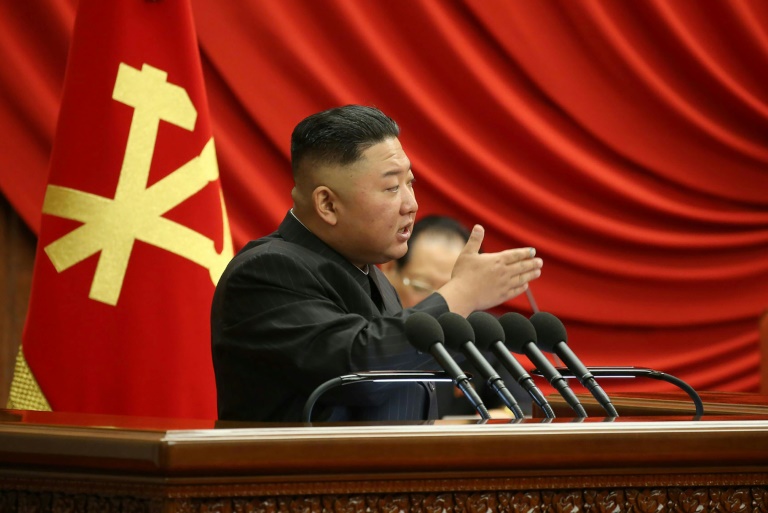North Korean leader Kim Jong Un replaced several senior officials after a “crucial” coronavirus incident, state media reported Wednesday, in what analysts said was a signal the disease had breached its defences.
Pyongyang closed its borders in January last year to try to protect itself against the virus that first emerged in neighbouring China and has gone on to sweep the world.
It has not publicly confirmed any cases of the disease at any point, neither in state media nor in the test statistics it has disclosed to the World Health Organization.
But analysts said the latest development was a clear indication there had been infections in the isolated country, which is under international sanctions for its nuclear weapons and ballistic missile programmes.
Officials had neglected their duties and caused a “crucial” incident, “creating a great crisis in ensuring the security of the state and safety of the people and entailed grave consequences”, Kim told a politburo meeting, according to the state Korean Central News Agency.
It did not specify any details of what had happened.
But Kim added that cadres’ “lack of ability and irresponsibility” had hindered the implementation of important tasks, accusing them of “self-protectionism and passiveness”.
The impoverished country’s ramshackle health system and lack of medical supplies would leave it struggling to cope with a major Covid-19 outbreak.
Members of the presidium of the politburo — the highest decision-making body of the ruling Workers’ Party — and the politburo were recalled and new ones named at the meeting on Tuesday, KCNA reported, adding that government officials were “transferred and appointed”.
The KCNA dispatch “basically means North Korea has confirmed cases”, defector-turned-researcher Ahn Chan-il told AFP.
“The fact that the politburo discussed this, and that the KCNA reported about it, signals Pyongyang is probably in need of international aid,” he said.
“Otherwise they would not have done this as it inevitably involves acknowledging the regime’s own failure in its anti-epidemic efforts.”
– High price –
Ever since the pandemic began, North Korean state media have highlighted anti-coronavirus efforts and officials have exhorted the people to remain vigilant.
Leader Kim himself tearfully thanked his people for not having had any cases at a military parade in October, although analysts have long doubted the assertion.
And Pyongyang’s coronavirus defence has come at a high price.
Its self-imposed and strictly enforced blockade has left it more isolated than ever: trade with Beijing — its economic lifeline — slowed to a trickle while all international aid workers have left.
Several UN relief groups confirmed to AFP that the Needs and Priorities document — a key report that summarises the humanitarian situation in the country and forms the basis of UN appeals — will not be published this year.
And this month, Pyongyang admitted it was tackling a food crisis, sounding the alarm in a nation with a moribund agricultural sector that has long struggled to feed itself.
Earlier, Kim warned his people to prepare for the “worst-ever situation”.
Pyongyang has been looking to shore up loyalty to the authorities, with state television last week showing a resident of the capital expressing concern and saying everyone was “heartbroken” over the “emaciated” condition of Kim, who has lost significant weight in recent weeks.
Analysts say Pyongyang is using Kim’s appearance as a way to glorify him by portraying him as a “devoted, hardworking” leader as the country struggles to tackle its food crisis and other challenges.
In recent months, Kim has issued a series of lengthy letters to regime organisations such as the Youth League and the trade union federation exhorting them to pursue “loyalty and patriotism”.
At the same time, authorities have mounted a campaign against “criminal” youths tarnished by foreign influences that are “dangerous poisons” to state ideology, according to KCNA.











